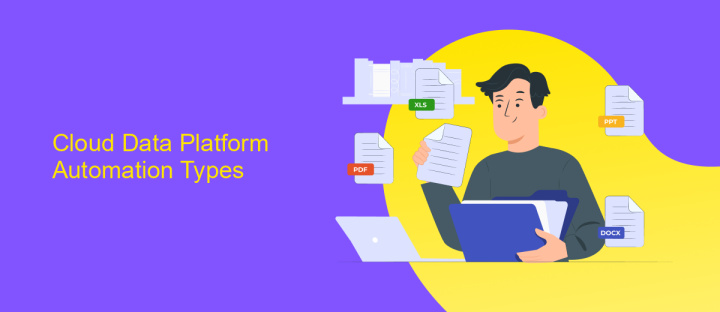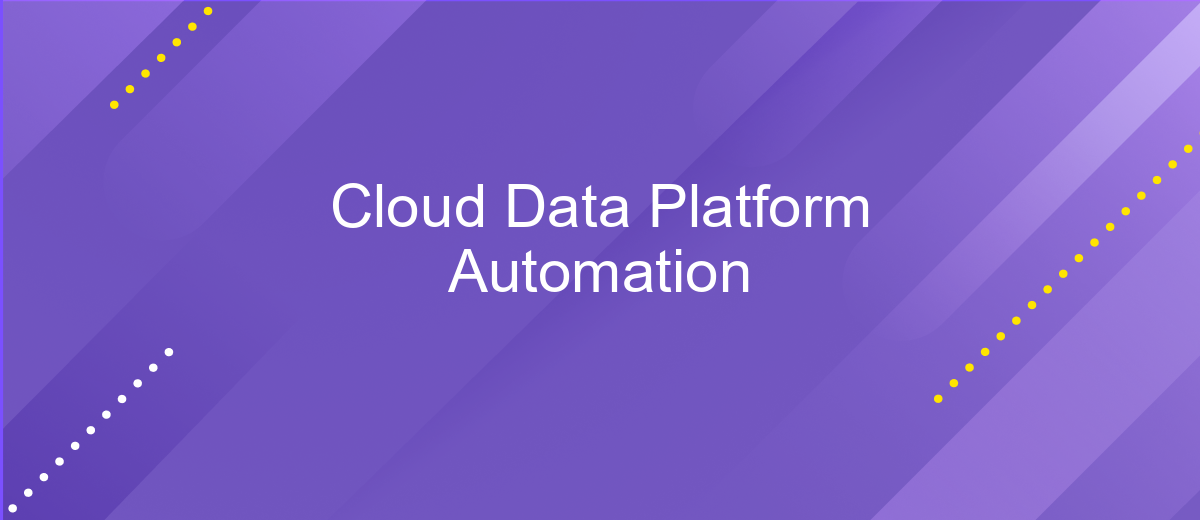Cloud Data Platform Automation
In today's fast-paced digital landscape, the automation of cloud data platforms has become essential for businesses aiming to optimize their data management processes. By leveraging advanced technologies and automation tools, organizations can enhance efficiency, reduce operational costs, and ensure seamless data integration. This article explores the transformative impact of cloud data platform automation and its critical role in driving business success.
Introduction
In today's fast-paced digital landscape, the need for efficient and scalable data management solutions has never been more critical. Cloud Data Platform Automation emerges as a pivotal innovation, enabling organizations to streamline their data workflows, enhance operational efficiency, and reduce human error. By leveraging automation, businesses can focus on deriving actionable insights rather than being bogged down by manual data processing tasks.
- Automated data ingestion and integration
- Seamless data transformation and cleansing
- Enhanced data security and compliance
- Scalable data storage and retrieval
- Real-time data analytics and reporting
These capabilities not only improve the overall performance of data platforms but also provide a competitive edge in today's data-driven economy. As organizations continue to generate vast amounts of data, the adoption of Cloud Data Platform Automation will be essential for maintaining agility and ensuring data accuracy. This introduction delves into the key benefits and functionalities of automated cloud data platforms, setting the stage for a deeper exploration of their transformative potential.
Cloud Data Platform Automation Types

Cloud Data Platform Automation encompasses various types aimed at streamlining data management processes. One significant type is workflow automation, which automates repetitive tasks such as data ingestion, transformation, and loading (ETL). This ensures data is consistently processed and updated without manual intervention, improving efficiency and reducing errors. Another type is monitoring and alerting automation, which continuously observes data pipelines and triggers alerts when anomalies or failures are detected, allowing for timely resolution and maintaining data integrity.
Integration automation is also crucial, enabling seamless data flow between disparate systems and applications. Tools like ApiX-Drive facilitate this by providing a platform to set up and manage integrations effortlessly. ApiX-Drive connects various data sources and destinations, automating data synchronization across platforms, thereby ensuring real-time data availability. Additionally, security automation helps in enforcing data governance policies, managing access controls, and ensuring compliance with industry standards, thereby protecting sensitive information and maintaining regulatory compliance.
Benefits of Cloud Data Platform Automation

Cloud Data Platform Automation offers a myriad of advantages that significantly enhance the efficiency and effectiveness of data management processes. By leveraging automation, organizations can streamline their data workflows, reduce manual intervention, and achieve faster time-to-insight. This not only improves operational efficiency but also allows data teams to focus on more strategic tasks.
- Scalability: Automated platforms can easily scale to accommodate growing data volumes without additional manual effort.
- Consistency: Automation ensures consistent data handling, reducing the risk of human errors and improving data quality.
- Cost Savings: By minimizing manual tasks, organizations can reduce labor costs and allocate resources more efficiently.
- Speed: Automation accelerates data processing and analysis, enabling quicker decision-making and responsiveness.
- Compliance: Automated systems can help maintain regulatory compliance by ensuring data governance and security protocols are consistently followed.
In summary, the automation of cloud data platforms not only optimizes data management but also delivers substantial benefits in terms of scalability, consistency, cost savings, speed, and compliance. By embracing these advantages, organizations can stay competitive and agile in today's data-driven landscape.
Challenges and Considerations

Implementing a Cloud Data Platform Automation strategy can be fraught with numerous challenges and considerations. One of the primary concerns is ensuring data security and compliance with industry regulations, which can be complex in a cloud environment. Additionally, integrating various data sources and maintaining data quality can present significant hurdles.
Another challenge is the potential for increased costs associated with cloud services. While automation can lead to efficiencies, the initial setup and ongoing management can be expensive. Organizations must also consider the learning curve for staff and the need for specialized skills to manage and operate the automated platform effectively.
- Data security and compliance
- Integration of diverse data sources
- Maintaining data quality
- Cost management
- Skillset requirements
In conclusion, while Cloud Data Platform Automation offers numerous benefits, it is essential to carefully evaluate and address these challenges to ensure a successful implementation. Proper planning, investment in training, and robust security measures are crucial for maximizing the advantages of automation while mitigating potential risks.
Best Practices and Conclusion
When implementing a Cloud Data Platform Automation strategy, it is crucial to follow best practices to ensure seamless integration and optimal performance. Start by clearly defining your data governance policies to maintain data quality and compliance. Utilize robust tools such as ApiX-Drive to automate data integration processes, reducing manual efforts and minimizing errors. Regularly monitor and audit your data pipelines to quickly identify and resolve any issues. Additionally, ensure that your platform is scalable to accommodate increasing data volumes and evolving business needs.
In conclusion, automating your cloud data platform can significantly enhance operational efficiency and data accuracy. By adhering to best practices, such as implementing strong data governance, leveraging automation tools like ApiX-Drive, and maintaining scalability, organizations can unlock the full potential of their data assets. Continuous monitoring and auditing further ensure the reliability and integrity of the data, enabling informed decision-making and driving business growth.
FAQ
What is a Cloud Data Platform?
Why is automation important in a Cloud Data Platform?
How can I automate data integration in a Cloud Data Platform?
What are the benefits of using ApiX-Drive for Cloud Data Platform automation?
Can I integrate multiple data sources with my Cloud Data Platform?
Strive to take your business to the next level, achieve your goals faster and more efficiently? Apix-Drive is your reliable assistant for these tasks. An online service and application connector will help you automate key business processes and get rid of the routine. You and your employees will free up time for important core tasks. Try Apix-Drive features for free to see the effectiveness of the online connector for yourself.

